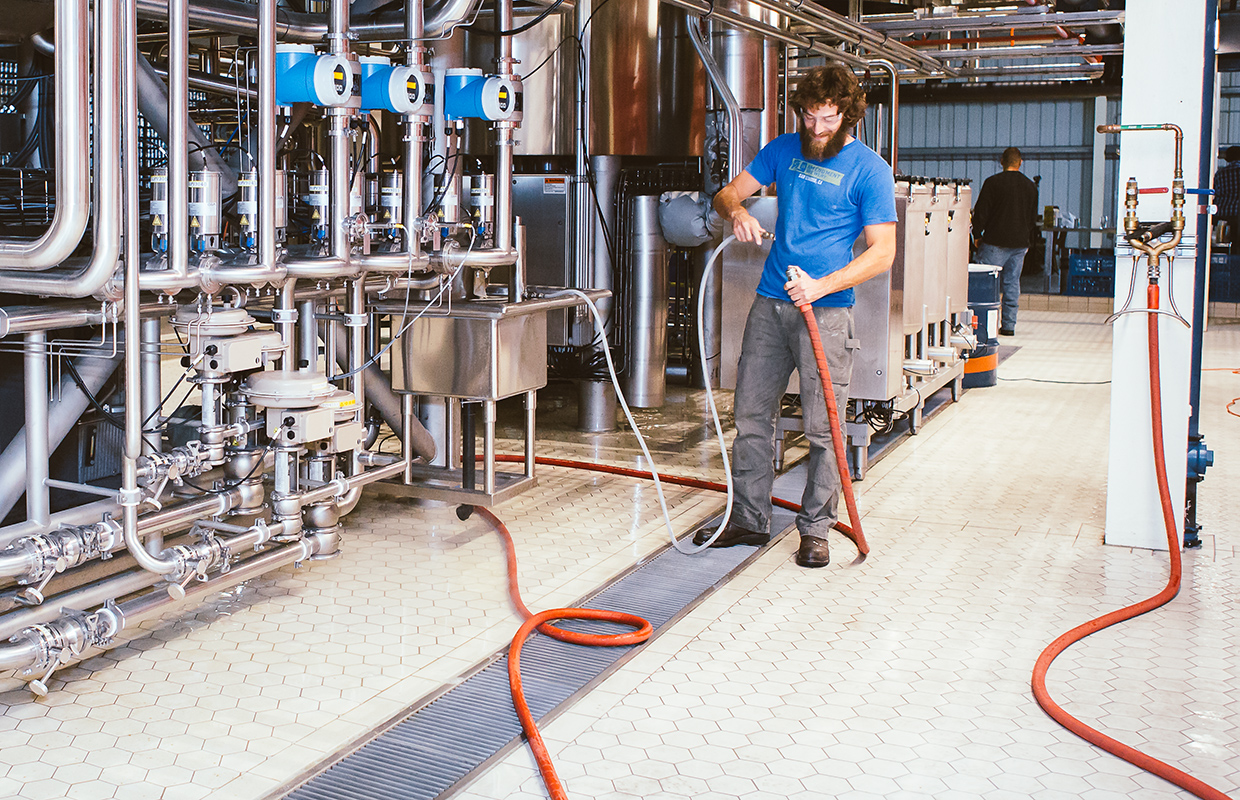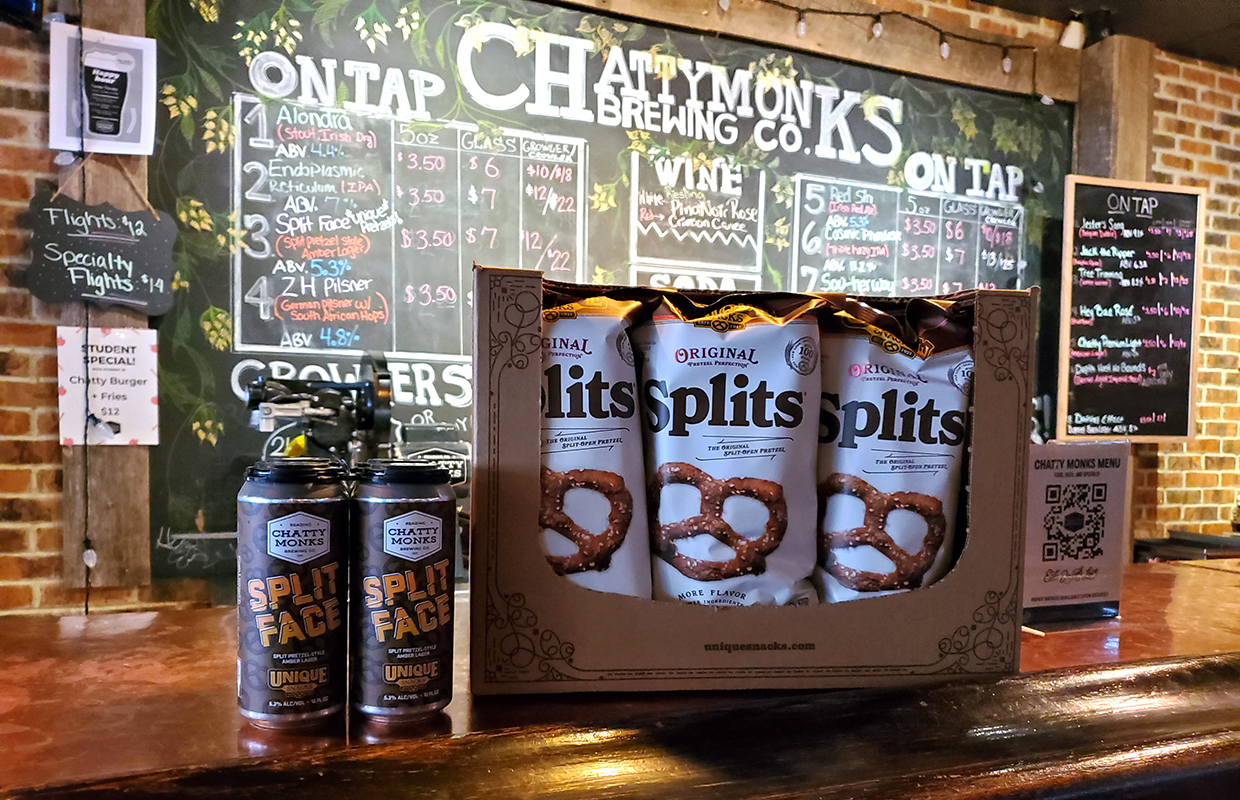
There are so many ways to achieve various fruit aromas and flavors now, but finding what works for you can come down to each brand and each type of fruit addition.
In the January/February issue of Brewer, experts from across the country weighed in on what they do, and to complement that article, we asked what are the pros and cons of using fresh fruit and purees versus using juices and concentrates versus adding natural flavorings.
Ska Brewing always favors fresh fruit or purees, but COO Steve Breezley said there are merits to all of them, along with limitations.
“Fresh fruits/purees, while fantastic representations of “real” fruit flavors, can sometimes provide materials we don’t necessarily want in the beer (pulp, pectin, and such),” he said. “They also have high levels of fermentable sugars so they either need to be fully fermented or pasteurized — of which we don’t have that equipment — to be stable in the package.
“Because of this, many fruit attributes can be lost during fermentation. Additionally, fresh fruits and purees are unstable themselves, and either need to be used within hours of packaging, or they need to be pasteurized as well.”
That means cold storage for these can be a challenge as well, as they’re often in large quantities such as barrels or drums.
Fresh fruit often, but not always, has the brightest and truest profile for many fruit varieties, pointed out Wolf’s Ridge Brewing Head Brewer Chris Davison.
“It would be the ideal choice if it wasn’t hard to work with,” he lamented. “The cons are plentiful. If the fruit is unripe the flavor is muted or not true to type or what the consumer is looking for. It requires processing and often specialized equipment. The less processing and equipment you have built to use fresh fruit typically means the more of a mess and risk of clogging/fouling or other production issues will arise. It can also mean requiring a ton of labor to process it all.”
Fresh fruit also brings the risk of introducing wild yeasts and microbes to your beer, so unless you’re adding it to a wild beer program, he added that the fruit is recommended to be pasteurized or processed in some other way to inhibit microbial growth.
READ MORE: Sourcing Fruit As Your Brand Grows
“Fresh fruit can be cheap, but often is more expensive in the end, as pound for pound, puree or concentrates will have more flavor intensity,” Davison said. “Basically with fresh fruit you need to use a lot.”
And, he pointed out to be aware of the risk of rotten/spoiled fresh fruit when you order and use it.
“When we order cases of citrus, we inevitably have to throw out 5-10% of it,” he said.
Puree is most common among craft brewers for a good reason. Davison said it’s easy to work with, has decent flavor intensity, and often ships in an aseptic form.
Taste and sample your purees first though as some varieties have much more intensity of flavor than others.
“Some have more true-to-type flavor than others as well,” he said. “Some brewers will tell you they feel puree offers more of a ‘cooked’ flavor profile than the brightness of fresh fruit.”
Despite the potential drawbacks, Wolf’s Ridge favors puree due to its shelf stability and ease of use.
“It’s usually going to be cheaper than fresh fruit and most varieties are always available versus fresh fruit needing to be in season,” Davison said. “I can buy a set quantity of puree and have relative consistency in a beer from batch to batch.
“Fresh fruit will offer wild variability for some of the reasons mentioned above.”
And because puree is already processed, the sugars are freed up and easy to ferment when the Wolf’s Ridge team adds it to the beer, which ensures a safe and shelf-stable product on store shelves.
“While whole/fresh fruit will ferment too, it can take longer and be less predictable both in how much sugar was added, to begin with, and when it’s truly done fermenting,” Davison said.
Concentrates and juices have challenges with stability and flavor loss during fermentation like purees do, but they have the benefit of smaller volumes and no solid matter concerns.
Davison said Wolf’s Ridge has rarely used juice.
“Juice is often acidic, less intense than puree, and often has added preservatives, acids, or sweeteners,” he cautioned. “If you are considering using juice, just use puree if there is one available.”
Wolf’s Ridge only uses one concentrate product, he said, using a tart cherry that Davison said is bursting with intensity and of very high quality.
“Be careful though, while purees often ship at around 10-16 Brix, concentrates can have 50-90 Brix worth of sugar in them,” he said. “Plan for this to avoid unplanned monstrous ABVs.”
Natural fruit extracts or flavorings offer the type of product stability that can be added post-fermentation, which Breezley said can be a benefit.
“The limitation with extracts is that they can tend to have “fake” flavors, and generally can’t be used as a wholesale substitute for real fruit products,” he added.
What Works Best?
Unfortunately, there is no direct answer to that. It really does come down to personal preference along with pricing to make it affordable to you and the end consumer.
“I believe they all have a place in making good beers, and it often depends on the fruit,” Breezley said. “Take apples for example — an apple juice concentrate is by far and away the best product to use to get apple flavor.
“For other fruits like passion fruit, juices don’t represent the flavors well at all, and purees need to be used. Quite often I recommend being open-minded to using all types of fruit products.”
Breezley added that purees and juices are best in the brewhouse — if they need to be flash pasteurized — and fermenter so they can fully ferment out, and extracts are best for post-fermentation (and post-filtration) so you can maximize flavor and aroma from them.
“Have fun and don’t pigeonhole yourself into thinking whole fruit is the only good way to do things,” he added. “The end goal is to make great tasting beer, and we’ve found that it usually takes a blend of things.”
A new fruited release from Ska, Mesa Guava IPA as an example, has a ton of guava puree in it, but Breezley said they do use a natural guava extract post-fermentation as well to give it the guava aroma you just can’t get from the real fruit.
“I think it kicks ass,” he said.
Photo courtesy 21st Amendment




Be the first to comment